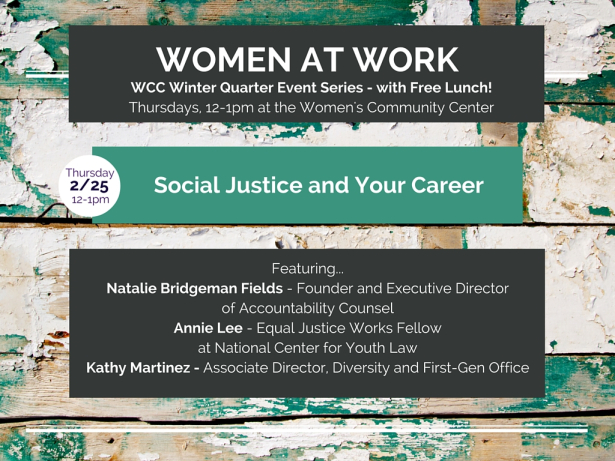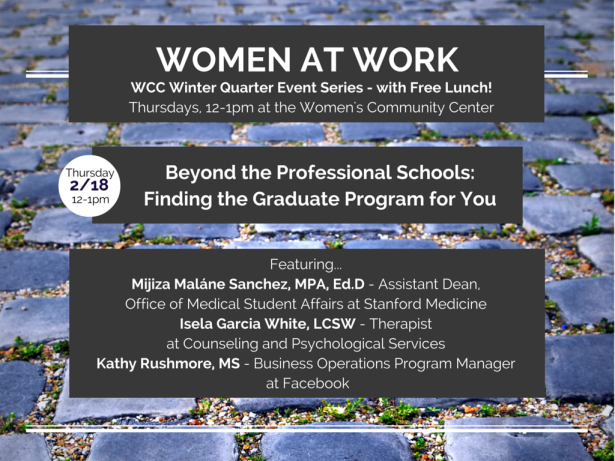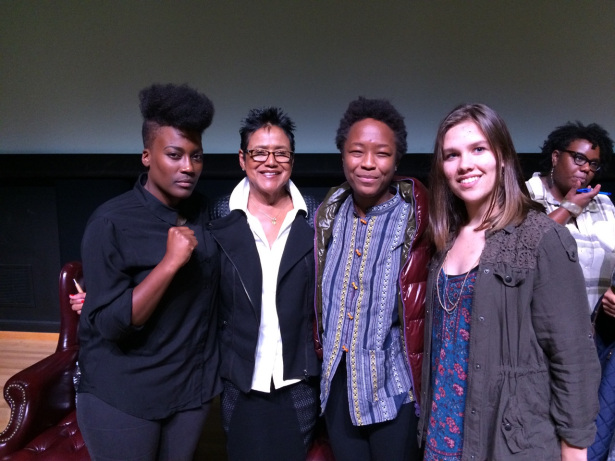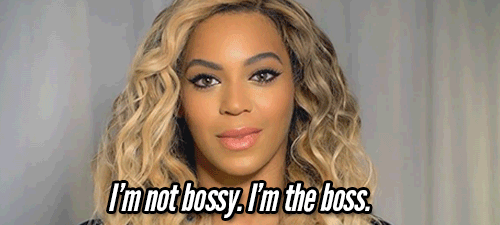Many of us are engaged in social justice issues on campus and want to continue to engage with these issues in the future. Last week, we hosted “Social Justice and Your Career” to explore what it means to use your career as a platform for social justice work.
We hosted three incredible speakers…
Natalie Bridgeman Fields, Founder and Executive Director of Accountability Counsel
Annie Lee, Equal Justice Works Fellow at the National Center for Youth Law
Kathy Martinez, Associate Director at Stanford Diversity and First-Gen Office

Our panelists represented a variety of social justice interests – education, poverty, racial justice, representation, environmental justice, etc. – and it was clear that they translated their passion into meaningful work. While discussing their careers, they also shared their insight into how to build a sustainable social justice career.
Social justice work has many rewards
Our panelists defined social justice as respecting people’s dignity and shifting power dynamics. This means challenging the status quo and supporting greater representation for people of all backgrounds. They recommend being true to ourselves and our own passions throughout our career. We should keep social justice issues at the forefront of our minds.
It’s truly awesome to work on something you feel passionate about and to feel like your work is meaningful and important. When you engage closely with the communities you serve, you can see the direct effects of your work. Working on causes that directly impact people’s lives is one of the greatest rewards of social justice careers.
Social justice work can be challenging
Our panelists emphasized that doing effective social justice work requires understanding and engaging with the communities we serve. Working closely with challenging issues can also be frustrating, saddening, or cause guilt when we don’t live up to our goals.
There can be other challenges to social justice careers as well. Society may not appear to value our work as much as it’s worth. Our guests mentioned that the pay in social justice roles is often low. In order to thrive and be as effective as possible, it’s important to balance selflessness with knowing our worth. Sometimes we have to make compromises or transitions throughout our career to balance our needs and goals.
Self care is key!
After discussing the rewards and challenges of social justice work, we started talking about how to take care of ourselves while going through the various stages of our careers. With a lot of challenging and stressful things going on in the world, we have to take care of ourselves in order to be ready to make a broader impact. Self care is often challenging, but it’s incredibly important.
Self care takes a lot of different forms, and you can find what works for you! For some people, self care means exercise, meditation, or spending time with friends. We have to find a balance between work, social justice engagement, and other aspects of life. A community and support system are also crucial! There are a lot of people with similar interests and experiences, so tap into this network.
There are many ways to incorporate social justice into our life!
Social justice issues permeate every part of society. It is important to be intentional with our work and the way it influences those around us.
It’s also important to recognize that a lot of learning will also happen throughout your career. Sometimes we have to do trial by error and learn from our mistakes. We might not find the perfect balance right away. Everything we do can be a step towards reaching a goal, as long as we are learning. There’s no clear path forward— it is important to have a long-term plan and a set of values, while still being flexible.
Join us in bringing social justice into our life paths! Engage others in the conversations. Look around at the tables you’re sitting in. Who’s there? Who’s not? How can we bring underrepresented people to the table?
Posted by Annie and Belce

 Above image: Ashley Yates (Ferguson activist), Elaine Brown (former chairman of the Black Panther Party and activist), Maya Odei (WCC Herstory Month coordinator), Claire Robinson (WCC intern).
Above image: Ashley Yates (Ferguson activist), Elaine Brown (former chairman of the Black Panther Party and activist), Maya Odei (WCC Herstory Month coordinator), Claire Robinson (WCC intern).

